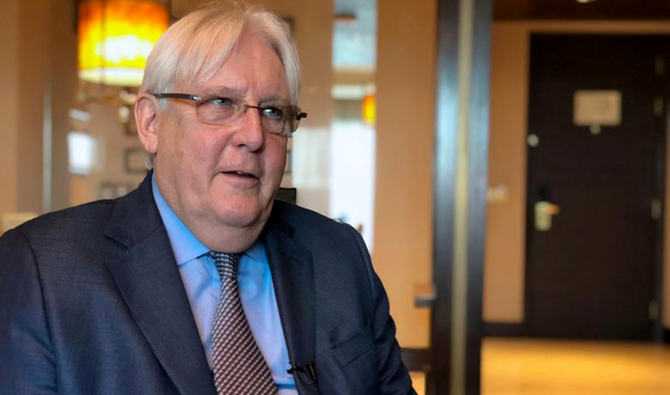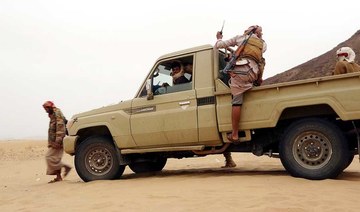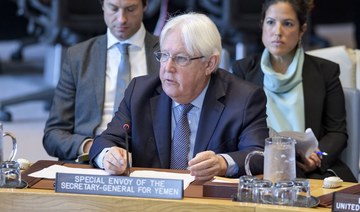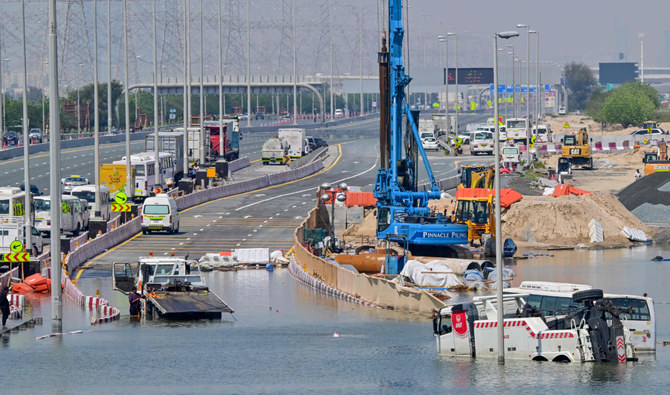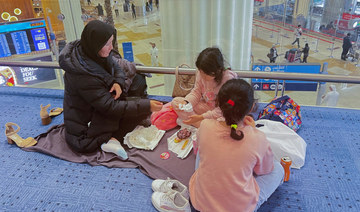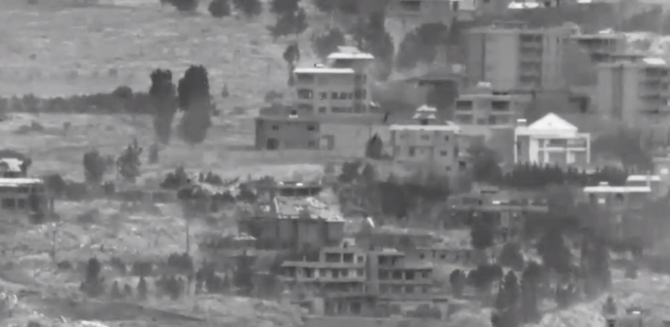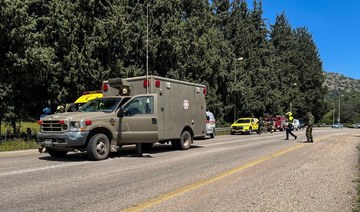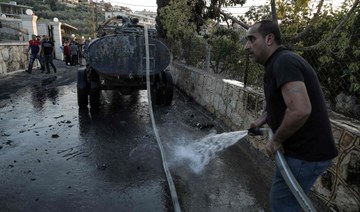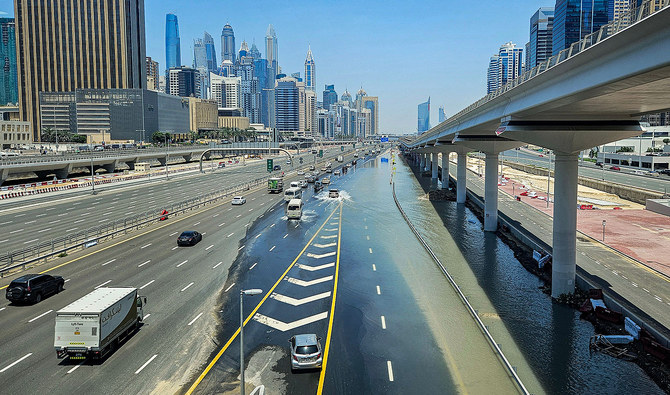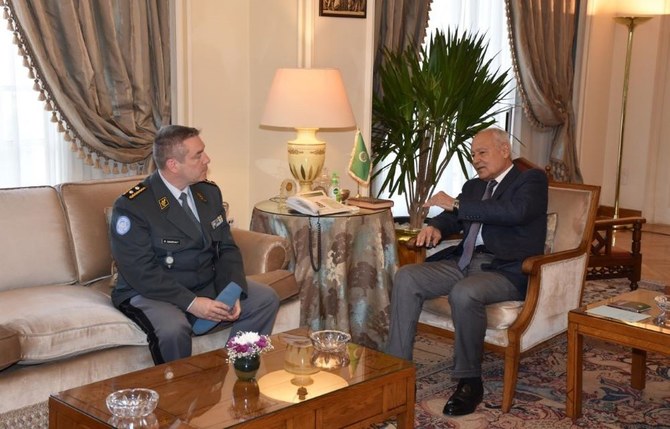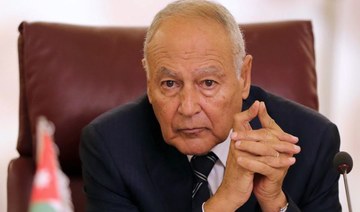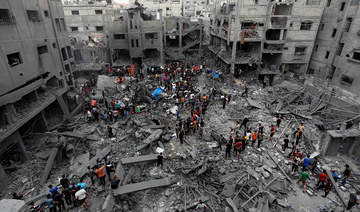AL-MUKALLA: Martin Griffiths, UN envoy for Yemen, on Wednesday said that warring factions in Yemen are not close to striking a deal to end the war despite extensive diplomatic efforts.
“We have been discussing these issues for over a year now and the international community has been supporting us in full force,” he said in a statement. “Unfortunately, we are not where we would like to be in reaching a deal. Meanwhile, the war continues unabated and causes immense suffering to the civilian population.”
The announcement comes as Yemeni President Abed Rabbo Mansour Hadi ordered his government to intensify military support to army troops and tribesmen in the province of Marib in an attempt to push back the Iran-backed Houthi rebels.
Ending a weeklong round of meetings in Riyadh and Muscat, Griffiths said his latest discussions focused on stopping the year-long Houthi assault on Marib, easing restrictions on Hodeidah seaports and opening the Sana’a International Airport.
“I will keep engaging all involved, concerned actors and stakeholders to offer them opportunities to find common grounds to help advance the peace efforts,” Griffiths said.
Three officials with knowledge of the talks in Muscat and Riyadh told Arab News that the Houthis refused to meet the UN envoy and Tim Lenderking, US special envoy for Yemen, in the Omani capital.
Instead, the rebels insisted on opening the Sana’a airport to unlimited destinations, including Iran, lifting restrictions on the seaport and the complete cessation of Arab coalition airstrikes before they would consider halting their deadly offensive on the central city of Marib.
“We do not trust them — they have never adhered to any deal,” a senior government official said on condition of anonymity because he was not authorized to speak to the media.
The official also said the Yemeni government would agree to open flights from the Sana’a airport to India, Egypt, Jordan, and Sudan and would lift restrictions on ships to Hodeidah seaport.
However, the Yemeni government believes direct flights from Sana’a to Iran, Syria and Lebanon would enable Houthis to funnel weapons and fighters.
On Monday, Houthi chief mediator Mohammed Abdul Sallam signaled the failure of diplomatic efforts when he rejected “partial” solutions to the Yemen conflict.
The Houthi official pointed to predicted punitive measures from the UN Security Council on its movement for rejecting peace ideas. “Any new activity from the Security Council will not be achievable except what meets the interest of Yemen,” he wrote on Twitter.
Meanwhile, the Yemeni president ordered his government to step up military support to government troops battling Houthis in the central province of Marib, Yemen’s prime minister said on Tuesday.
Chairing a meeting with senior government and military officials in Marib, Maeen Abdul Malik Saeed said he received orders from the president to visit Marib, which has been under attack by the Houthis for more than a year.
“History is being written now in Marib. All of Yemen is following Marib and we came to Marib to be part of this important moment … the state and its capabilities are with you,” the prime minister said.
Saeed stressed that the government would accept a sustainable peace effort that would implement a strong divide between Yemen and Iran.
“We are not begging for peace that establishes a fragile and racist state on Iran’s model and its militias in the region,” he said.
During the same meeting, Governor of Marib Sultan Al-Arada, who has recently called for rallying forces to push back the Houthis, said the continuing rebel military operations have triggered a “huge” displacement as thousands of people have fled the fighting.
“Yemenis would never enjoy peace as long as the state’s weapons are in the militia’s hands,” the governor said.



